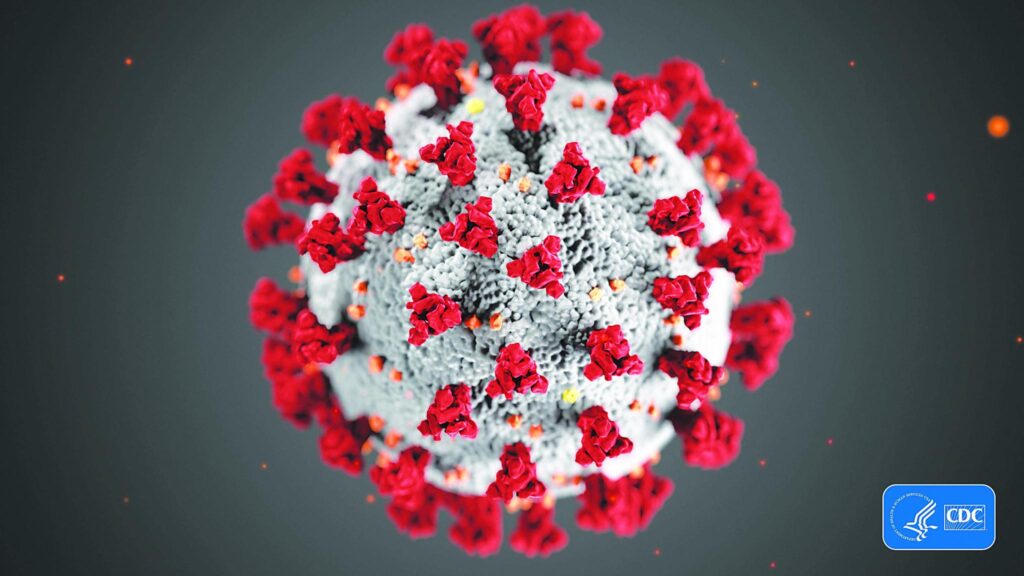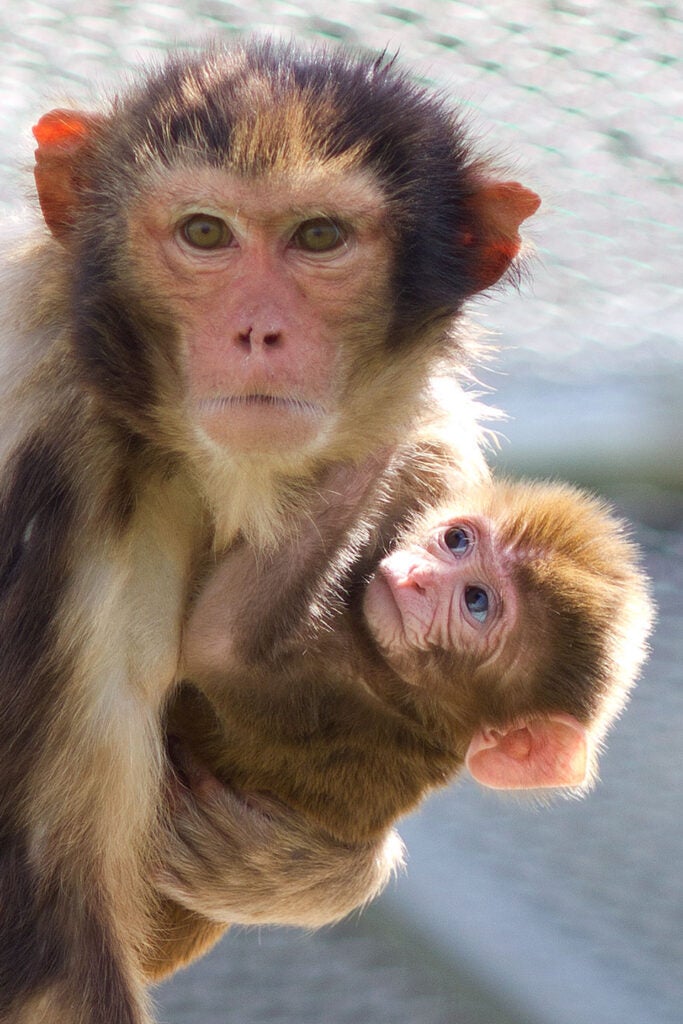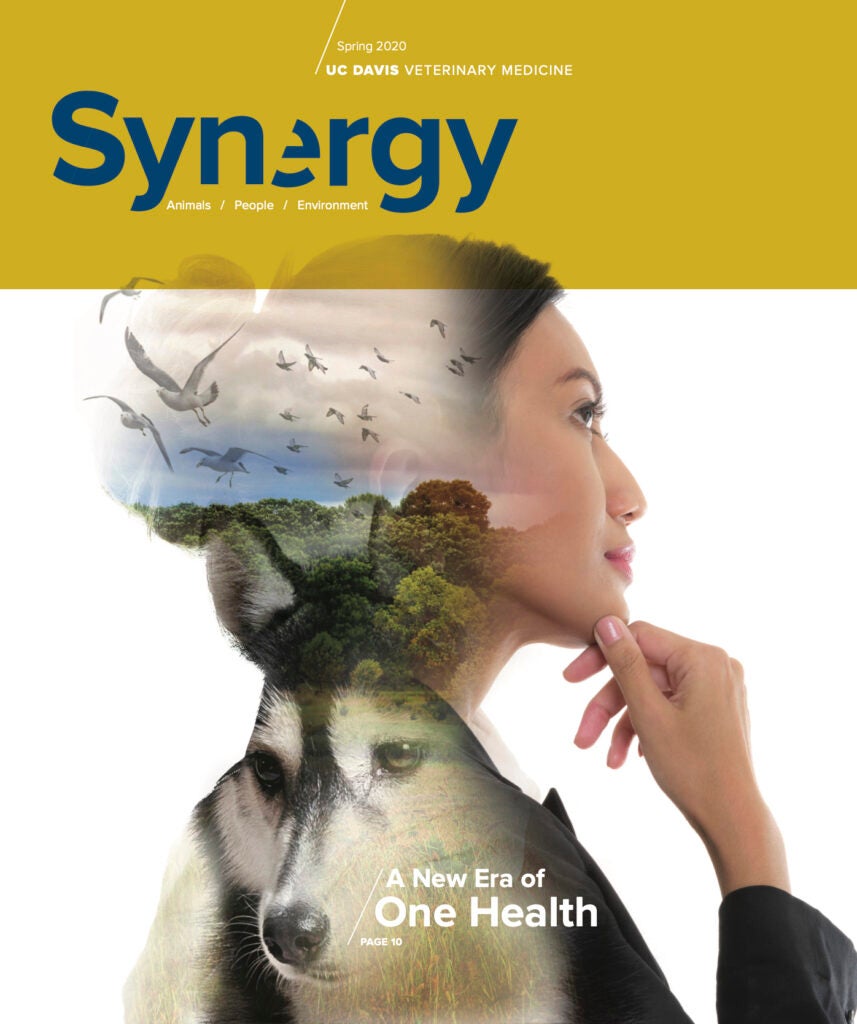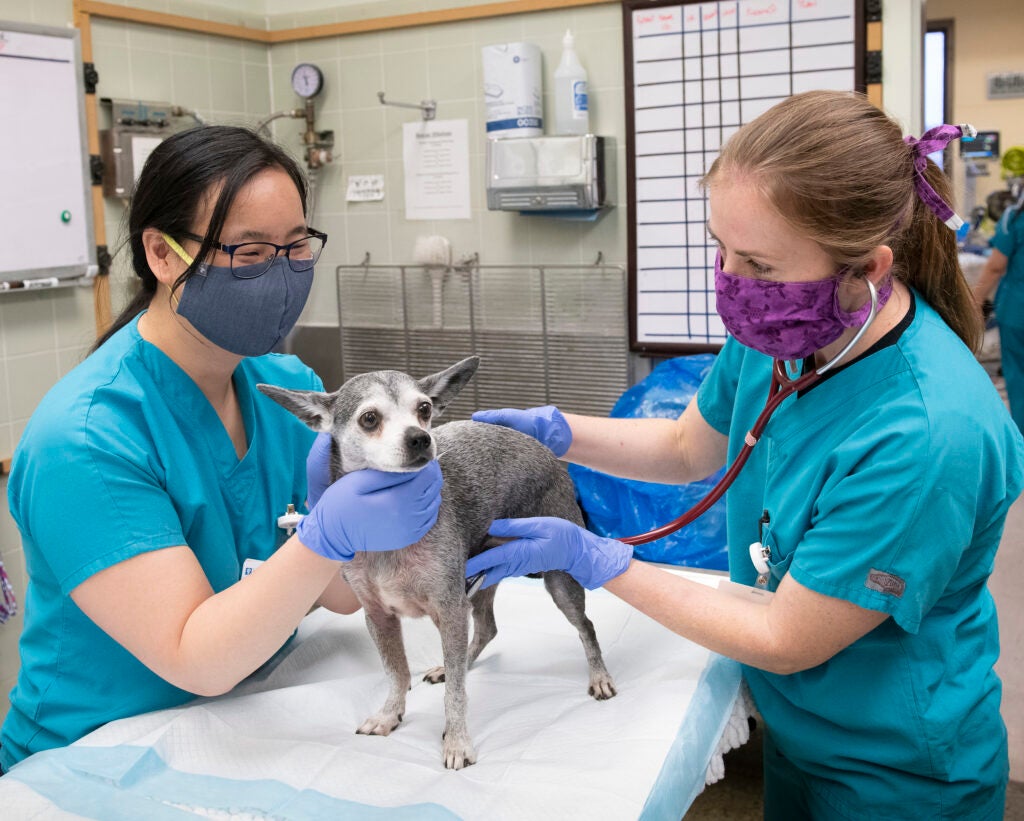“By working to ensure we live in a society that prioritizes public safety, education, and innovation, entrepreneurship can thrive and create a better world for all of us to live in.” —Ron Conway
Our current COVID19 pandemic has catapulted our society into a new reality and an uneasy sense of the future. The global spread of SARS-CoV-2 and its tragic impact on the lives of those affected has forever changed our view of how we view the world. In response to the public health threat, our scientists and innovators have worked to bring new ideas and creativity to solve the complexity of the effects of this new pathogen and the subsequent public health crisis caused by our inability to control its transmission. From tragedy, however, our faculty, staff, and students have risen to the occasion.
Researchers in our School have responded to the COVID-19 challenge by bringing fresh ideas to this new problem. Dr. Patricia Pesavento, our new Chair of the Department of Pathology, Microbiology, and Immunology, received a seed grant from the UC Davis COVID-19 Research Accelerator Funding Track Program to study how SARS-CoV-2 targets cells, a key to understanding the how the virus damages organs.
 Dr. Lark Coffey has received pilot funding to develop novel mouse models to mimic the effects of SARS-CoV-2 infection. Professor Nicole Baumgarth and Associate Professor Colin Reardon received a prestigious grant from the Chan Zuckerberg Initiative (CZI) to focus on novel processes that regulate the immune system in the lung during viral infections.
Dr. Lark Coffey has received pilot funding to develop novel mouse models to mimic the effects of SARS-CoV-2 infection. Professor Nicole Baumgarth and Associate Professor Colin Reardon received a prestigious grant from the Chan Zuckerberg Initiative (CZI) to focus on novel processes that regulate the immune system in the lung during viral infections.
 Our faculty teams at the California National Primate Research Center are providing unique resources to test COVID-19 vaccine development and for developing diagnostic tests. Dr. Jane Sykes, Chief Veterinary Medical Officer of the UC Davis veterinary hospital, has been widely featured in discussions of the emerging issue of the susceptibility of pets to infection from SARS-CoV-2. Drs. Brian Murphy and Niels Pedersen are investigating effective combined therapies against feline coronavirus, a naturally occurring animal model for COVID19.
Our faculty teams at the California National Primate Research Center are providing unique resources to test COVID-19 vaccine development and for developing diagnostic tests. Dr. Jane Sykes, Chief Veterinary Medical Officer of the UC Davis veterinary hospital, has been widely featured in discussions of the emerging issue of the susceptibility of pets to infection from SARS-CoV-2. Drs. Brian Murphy and Niels Pedersen are investigating effective combined therapies against feline coronavirus, a naturally occurring animal model for COVID19.
Beyond the laboratory, our faculty are working to intercept pandemics through genomics, and training the next generation of One Health workers. In an opinion feature in the Proceedings of the National Academy of Sciences, Dr. Jonna Mazet and colleagues discussed approaches in comparative genomics that are needed to discover the diversity of infectious agents capable of zoonotic transmission, as well as resources and surveillance systems needed to develop early diagnostic tests and vaccines.
 The COVID-19 pandemic provides a clear example of why a One Health approach is critical to protecting the well-being of people, animals and their shared environment. In our new Synergy magazine, we feature how UC Davis veterinary clinicians and researchers are collaborating with their colleagues in human medicine, biology and engineering to achieve breakthroughs. The PREDICT Project, supported by the One Health Institute, collaborated with consortium partners around the world to enable zoonotic disease detection capabilities in more than 60 laboratories and train a One Health workforce of nearly 7,000 cross-trained professionals.
The COVID-19 pandemic provides a clear example of why a One Health approach is critical to protecting the well-being of people, animals and their shared environment. In our new Synergy magazine, we feature how UC Davis veterinary clinicians and researchers are collaborating with their colleagues in human medicine, biology and engineering to achieve breakthroughs. The PREDICT Project, supported by the One Health Institute, collaborated with consortium partners around the world to enable zoonotic disease detection capabilities in more than 60 laboratories and train a One Health workforce of nearly 7,000 cross-trained professionals.
Dr. Woutrina Smith and colleagues are extending this work by educating the next generation with the launch of the “One Health Workforce — Next Generation” consortium, which promotes global health security through networks in Africa and Southeast Asia to build the human resources and bolster the workforce for more effective disease surveillance and control.
Our innovations and discoveries in response to a crisis have allowed us to demonstrate how we meet societal needs, and contribute to the future of our planet. We should also take great pride in our global leadership position at the forefront of interventions on the behalf of public health and for advancing biomedical research. Our knowledge, hard work, and skills bring light into the darkness and offer hope for a brighter future for all of us.

